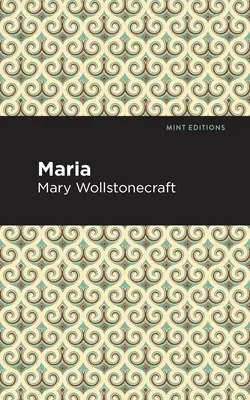Maria: or, The Wrongs of Woman (1798) is a novel by English writer,
philosopher, and feminist Mary Wollstonecraft. Intended as a fictional
sequel to A Vindication of the Rights of Woman (1792), a
groundbreaking work of feminism and political philosophy, Maria: or,
The Wrongs of Woman was published posthumously by Wollstonecraft's
husband, anarchist philosopher and writer William Godwin.
Denied her autonomy, Maria is sent to an insane asylum by her husband, a
wealthy aristocrat. Separated from her child and unable to advocate on
her own behalf, Maria is fortunate to befriend Jemima, an attendant from
the lower classes who empathizes with Maria's situation. Jemima secretly
provides her with books, inadvertently introducing her to the marginalia
of Henry Darnford, another inmate at the asylum. The three grow close,
sharing their stories with one another. Darnford reveals his troubled
past and struggles with alcohol, Jemima discloses her experiences as an
abused orphan-turned-prostitute, and Maria discusses her abusive
marriage to George Venables. As she turned toward literature and
intellectual life to avoid George's affairs and frequent gambling, Maria
found herself desperately looking for a way out. After several escape
attempts, George--who had been scheming for years to frame his wife in
order to divorce her--conspires to send her to the asylum, taking their
child and cutting off contact with Maria. Although unfinished, Maria:
or, The Wrongs of Woman explores the themes of her political and
philosophical writings while illuminating the injustices suffered by
women and lower class individuals in English society.
With a beautifully designed cover and professionally typeset manuscript,
this edition of Mary Wollstonecraft's Maria: or, The Wrongs of Woman
is a classic of English literature reimagined for modern readers.


